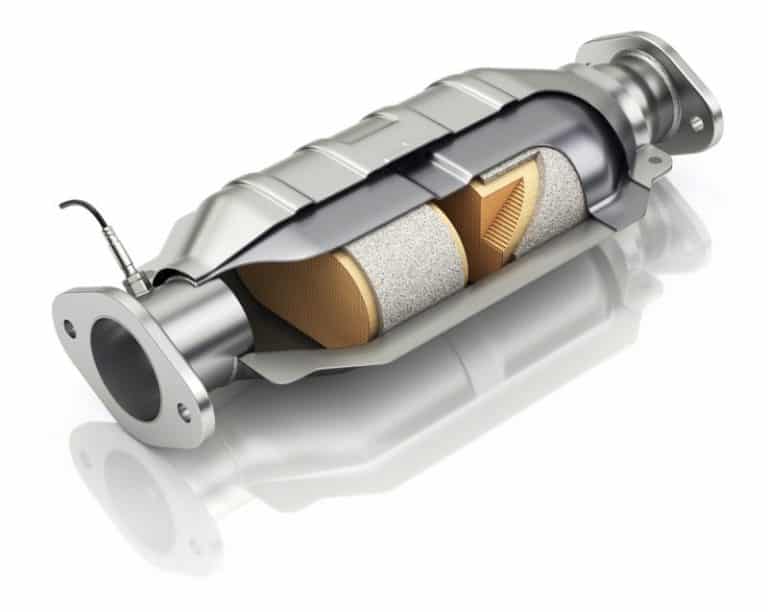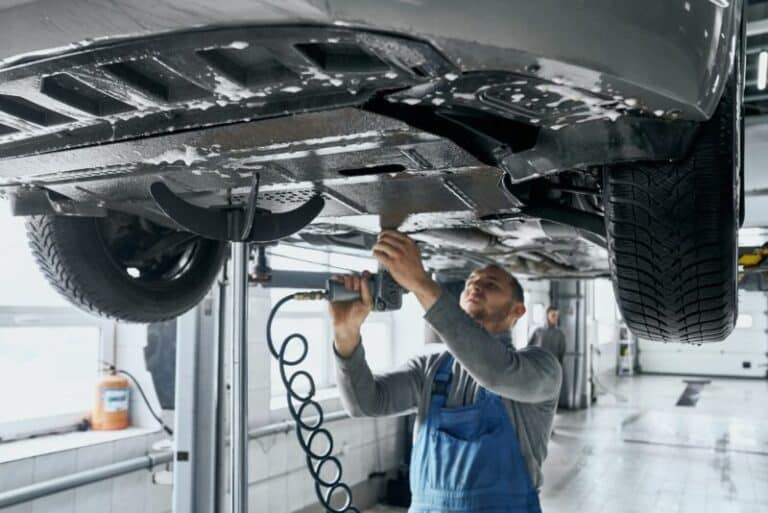Why Your Car Struggles to Accelerate Past 40: The Main Causes
Experiencing difficulties in accelerating your vehicle past a certain speed can be both frustrating and concerning. Regardless of how hard you push down on the gas pedal, your car simply refuses to go faster than 40 miles per hour.
In this article, we will explore some of the main reasons why your car might have trouble accelerating past 40.

Transmission Issues
One major reason behind acceleration problems is issues with your vehicle’s transmission system. The transmission is responsible for transferring power from the engine to the wheels, enabling your car to move at various speeds. If there is a problem with this vital component, it could have a significant impact on your vehicle’s performance.
Are you looking for ways to step up the kick and horsepower of your pickup van? check our tips: Pedal Commander Vs. Diablo Tuner (Comparison, Differences)
Automatic Transmission Fluid (ATF) Problems
Inadequate or contaminated automatic transmission fluid can cause your car’s transmission to struggle. Low fluid levels may lead to insufficient lubrication, friction between internal components, and eventually overheating.
On the other hand, contaminated ATF can block important passages and prevent smooth gear shifting. Checking and maintaining proper ATF levels and quality is essential for optimum transmission performance.
Malfunctioning Torque Converter
A faulty torque converter can also impede your car’s ability to accelerate beyond 40 mph. The torque converter is an essential component within the automatic transmission system that transfers and multiplies engine torque to the transmission.
A malfunctioning converter can cause poor acceleration, slippage, and ultimately limit your car’s top speed.
Engine-related Challenges
Your car’s engine plays a crucial role in propelling your vehicle forward. If something goes wrong under the hood, it can directly affect your ability to accelerate.
Improper Spark Timing
A faulty ignition system can result in improper spark timing, which affects the engine’s combustion process. This prevents the engine from generating maximum power and, consequently, limits your car’s acceleration capabilities.
Regular maintenance of your ignition components, such as spark plugs, coils, and distributor caps, can help prevent this issue.
Fuel Delivery Problems
Insufficient fuel supply to the engine can also hinder acceleration. Fuel delivery issues can arise due to a clogged fuel filter, malfunctioning fuel pump, or damaged fuel injectors. These problems may cause your engine to receive less fuel than needed, resulting in poor performance and limited acceleration.
Exhaust System Obstructions
A blocked exhaust system can be another reason for a sluggish car. A clog in the catalytic converter or muffler can restrict the flow of exhaust gases, leading the engine to work harder. This additional strain on the engine can impede acceleration and limit your car’s top speed.
Clutch and Drivetrain Problems
If you own a manual transmission vehicle, a worn-out clutch could be the culprit behind your acceleration woes. Your car’s clutch is responsible for transferring power from the engine to the wheels. When it wears out, it no longer engages properly, causing poor acceleration and potentially limiting your vehicle’s top speed.
On both automatic and manual vehicles, drivetrain issues such as a damaged driveshaft or differential can also contribute to limited acceleration. These components are vital for transmitting power to your vehicle’s wheels, and any damage or wear can affect their efficiency.
Electronic Malfunctions
In modern cars, various electronic systems control essential functions like fuel supply, ignition, and transmission. If there is a malfunction in one of these systems, it could result in poor acceleration.
Faulty Throttle Position Sensor
The throttle position sensor (TPS) is responsible for monitoring the gas pedal’s position and sending this information to your car’s electronic control module. A faulty TPS can give inaccurate readings, causing your engine to receive less fuel than necessary. This can lead to limited acceleration and an inability to maintain high speeds.
Do You Need Snow Chains For One Inch Of Snow? check this out: This is How Many Inches Of Snow Requires Chains!
Bad Mass Air Flow Sensor
A mass air flow sensor measures the amount of air entering your vehicle’s engine and helps determine the appropriate amount of fuel needed for optimal combustion. If this sensor fails or provides incorrect data, your engine may not receive the proper fuel mixture, resulting in poor performance and sluggish acceleration.
Maintaining Your Car’s Acceleration Capabilities
To prevent issues with acceleration, it’s essential to keep up with regular vehicle maintenance. Some key steps to follow include:
- Checking and changing transmission fluid as recommended by your vehicle manufacturer
- Inspecting and replacing worn spark plugs, ignition coils, and distributor caps
- Cleaning or replacing clogged fuel filters and ensuring proper fuel pump function
- Maintaining your exhaust system and addressing any obstructions or damage
- Regularly inspecting and repairing drivetrain components as needed
In conclusion, several factors can contribute to your car’s inability to accelerate past 40 mph. These range from transmission and engine issues to clutch wear and electronic malfunctions.
By staying on top of routine maintenance and addressing potential problems promptly, you can help ensure smooth acceleration and enjoy a more reliable driving experience.





